Part 98: День Победы. The Docs. The Aftermath.
July 5th, 1943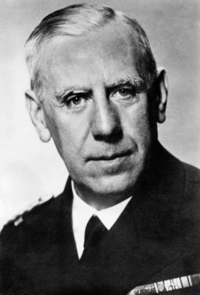
Admiral Wilhelm Canaris walked out of his Kubelwagen at the gate. With security here being as tight as it was, he could hardly expect to make it to the meeting on time. The car was thoroughly searched while he enjoyed a cigar - a rare luxury these days. He looked around. The forests of Mazuria did well to conceal the compound - unless you knew where to look. Eventually, the gatekeepers let him through and allowed him to enter the Wolf's Lair. He did not know that he did so for the last time.
He drove to the large concrete bunker on the other side of the compound, passing by another checkpoint. The men here were tired, but vigilant. They knew whom they were protecting. As he reached the building, Canaris was greeted by Martin Bormann, Hitler's personal secretary and one of the most reviled men in Germany. Bormann had long been abusing his privileged position to secure immense personal wealth, and he was also the one tasked with the construction of the Fuehrer's luxurious estates in the Alps and Bavaria. A repulsive, short-sighted and inept careerist, he had, however, enough cunning to know that his long-standing and proven loyalty to Hitler was all that his immense power was founded on. That day, Bormann was very polite as he led Canaris inside the bunker, to the waiting room outside of the Fuehrer's office.
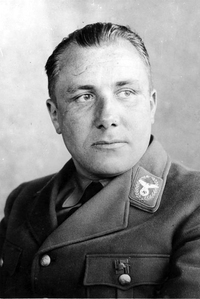
Once there, the two men conversed on the vicissitudes of the war. Bormann was certain that the red tide would soon be turned before entering East Prussia and threatening the fortress they were in. Canaris withheld his personal opinion on that matter.
Suddenly, the men heard a powerful explosion above them, which Canaris, being more acquainted with military matters than Bormann, instantly recognized as the sound of an 88mm AA gun firing. "What was that?!", yelled Bormann, shocked by the shot, as more and more rang all around them and as alarms started to wail. Canaris did not answer. He realized Skorzeny started the coup a few minutes early. He grabbed Bormann's pistol and kicked the fat man to the ground, then barged into Hitler's office.
The room was empty.
He turned around to see Bormann laughing as SS troopers filed into the room. "My dear Fuhrer is not here today, Herr Canaris, you traitorous swine," he bellowed, "but it is good to have you instead."
***
The aftermath of the failed July coup was absolute and immense chaos over half of Europe. At the same time as Skorzeny and his commandos, lured over by promises of power and wealth, descended upon the Wolf's Lair to capture Hitler, several Wehrmacht (and even some Waffen-SS) commanders also turned coat and seized many key cities of the German heartland, including Hamburg, Kiel and Saarbruecken. The news spread like wildfire, aided by Allied radio broadcast and resistance movements in conquered countries, leading to another wave of unrest. Many soldiers mutinied, tired of what they perceived as an endless walk into the meat grinder, others stood firm with the Nazis, but in any case, within weeks Greater Germany was torn between three main forces - the Nazi die-hards, pro-democratic (or, as the case had often been, just pro-Western) rebels and communist revolutionaries, rising after a decade in hiding.
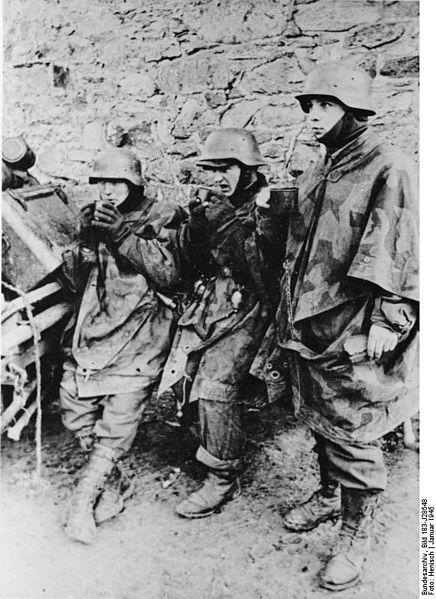
The Soviets were quick to realise the opportunity and seize it. In fact, only the exhaustion of their troops seemed to hold back their advance. In the north, they were quick to brush aside weak German and Romanian forces on the border, while in the south, the Germans began a disorganized retreat to the west - all the while trying to stave off the infighting. But even then, in less than three weeks their defence was already hinged on the Rumanian border, with their supply line threatened not only by the Soviets, but also by their wavering allies and Germans of other political options. The house came crumbling down, and the doors weren't even kicked in yet.
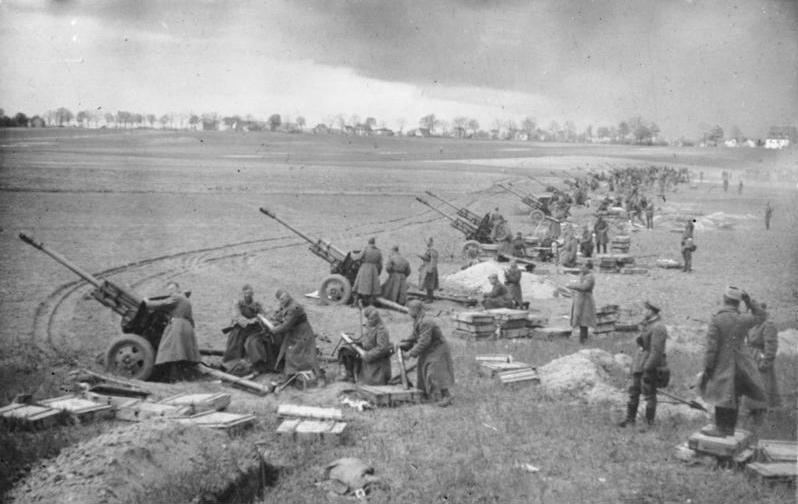
In these circumstances, Downing Street quickly realised that if they do not act, they may soon be looking at a communist France just across the Channel. But their forces were entirely out of position; concentrated in Tunisia, where they were gearing up for the invasion of Sicily. In a conference with the Joint Chiefs of Staff, Churchill put forth a plan to invade the Balkans instead, hoping to put a stop to the Soviet advance while they were still nominally allied. His idea was discarded, however, in favour of another option: preparing a landing in France, where the Vichy regime was seen as ailing and probably willing to surrender, and carrying on with the attack against Italy.
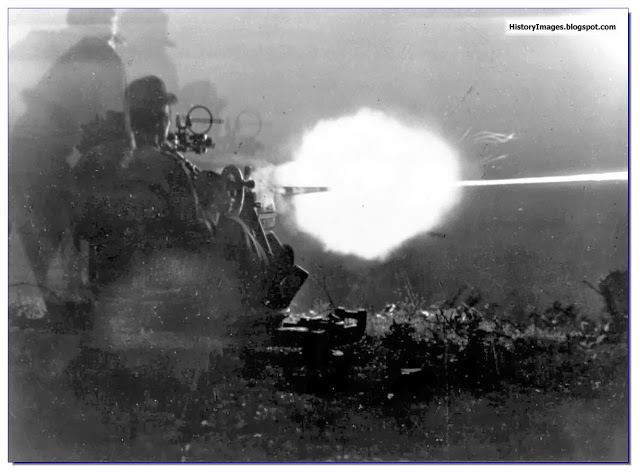
The landing was mildly opposed, and within two weeks the island was in Allied hands, prompting the Grand Fascist Council to overthrow Mussolini in a bloodless palace coup. The new Italian Prime Minister, Pietro Badoglio, negotiated an armistice. Whether or not this success would be quickly turned into a victory was in the hands of the commander of the still strong German Army Group B. Luckily for the West, that man was Erwin Rommel, who was more than willing to get out of the war. Nothing stood on the road to Rome, but, more importantly...
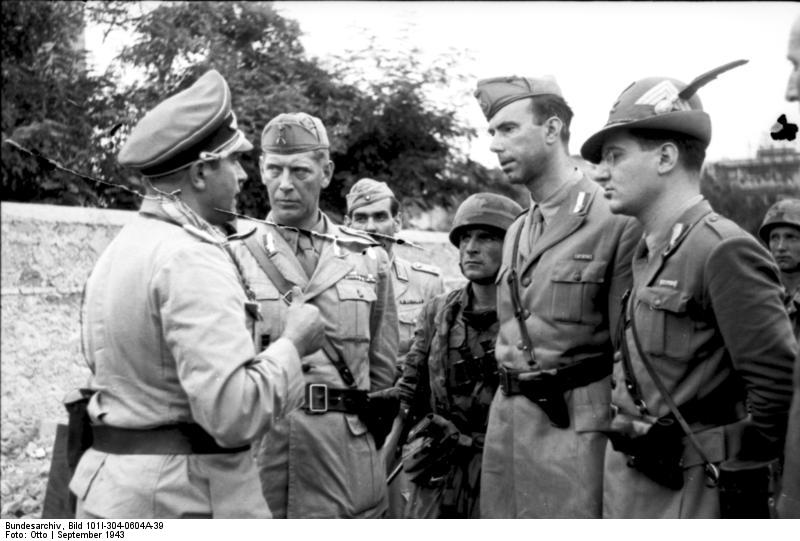
Nothing stood on the road to Warsaw, either. The city was declared a fortress by a force still loyal to Hitler, but as soon as the Soviets approached, the underground forces rose up to seize the city from the weakening German force. Stalin knew that time was of the essence, and he did not care much about his relations with the Polish government in exile (as he had already prepared a puppet government in Moscow), so he ordered the troops to seize the city immediately, arresting any resistance fighters as bandits. By the end of August, as the Western Allies were making their way up the Italian Peninsula, the Soviets stood at the Vistula and were ready for another leap to the Oder.
.jpg)
The Battle of the Pomeranian Wall was the last major engagement in which the Germans were on the offensive. For two days, the Army Group Vistula, formed from Nazi loyalists under Heinrich Himmler, tried to push back the Soviet tide. However, the Army Group was actually an overstrength army corps, morale was rock bottom and communication was awful. Himmler's HQ only had one phone, inaccurate maps and no radios, but, as one soldier remarked, "It was okay, since it meant he couldn't hand out any orders." Another was quoted as saying: "It made me miss the old days, under General Herpicle." After the Germans had left their defensive positions for a misguided, uncoordinated and unsupplied offensive, most of their force was smashed, and the Pomeranian Wall fell less than a week later. The road to Berlin opened wide.
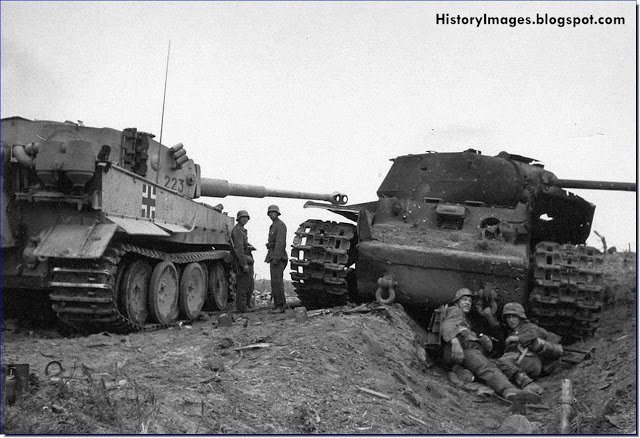
Standing at the crossroads, the Americans and the British puzzled over their next move. Their forces needed a few more weeks to rest and recuperate, and even though new American recruits kept pouring into Europe, they still weren't combat ready in any meaningful sense. In Churchill's mind, that was enough. Following another stormy debate, the Joint Chiefs finally approved his master plan. On September 14th, the American 1st Army under Patton landed in the fjords of Norway. A week later, Montgomery brought two British armies and an American one to the coast of Provence. In early October, five divisions of Allied paratroopers landed along the Athens-Saloniki road, with the hopes that they could hold the cities there and hold them until the British XXX Corps lands in the Peloponnese and link up north, securing Greece. The first plan was a mess. The second proceeded slowly. The third was a hilarious disaster (even if the Allies did eventually kick the Italian and German communists out of Greece), but Churchill always remembered it fondly.
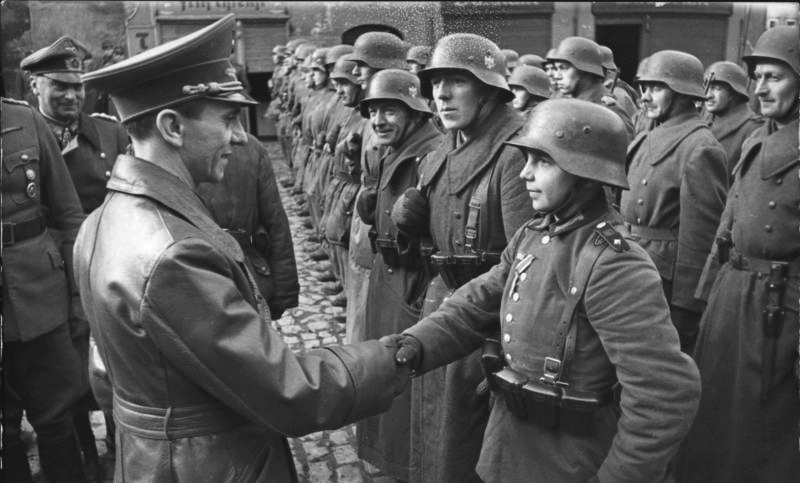
In Germany, the Soviets closed a pincer around Berlin. The city was defended by the last reserves, even boys as young as twelve, pressed into service of the falling Reich. It would be a massacre no matter what, with every street, block and basement fighting back against the unstoppable, but the result was never in doubt. After two weeks of fighting, Hitler committed suicide, and the garrison surrendered. But with so much of Germany hostile to Nazi officials, this meant that the highest ranking servants of the regime were captured alive in the city.

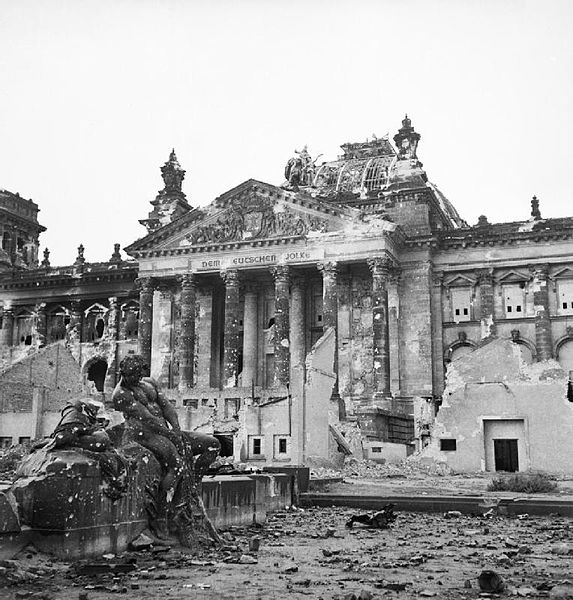
The war was nearly over at this point, and it was obvious to everyone. Generals Spookydonut and MonotoneMorgan raced one another towards the Rhine, hoping to jump across it and seize Paris. The leftover German forces could not and would not stop them, and regardless of their political standing, they were simply disarmed and taken prisoner. Stalin knew he had the upper hand, and that Germany would become a Soviet satellite after the war. The prize was now further west, in France.
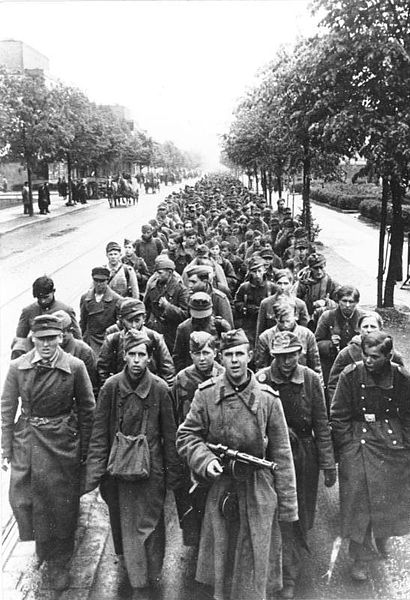
Down south, these months were far less hectic. With a lot of semi-organized German forces still in the area, pushing into the Balkans was quite fortuitous for the Soviets. But even that was overcome. Eventually, the line of the Carpathians was broken, and the Germans pushed back. Romania surrendered about a week later, when the Soviets took the oil fields of Ploesti and approached Bucharest. Hungary also abandoned the Axis cause soon afterwards, leaving the Germans trapped until their surrender in early November.

The race for Paris was long and arduous. Both sides were hindered by the political instability of the area - the Germans and the Vichy French split up into pro- or anti-communist groups, which conducted guerilla campaigns against the Allies. The Soviets were exhausted with their march across Germany and away from their logistical centres, while the American forces quickly turned out to be to small for the task at hand. It was the Soviets, however, who captured the French capital. Some weeks later, both forces met on the line some 50 kilometres south of the old demarcation line between the occupied part of France and the one under Vichy. The greetings were fairly cordial. Neither side knew that the line would eventually become a border between two French states.
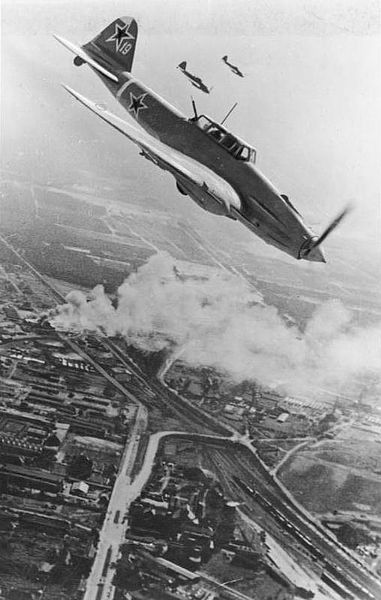
An uneasy peace once again entered Europe. The winners had managed to seize nearly all of those responsible for war crimes and crimes against humanity in Germany and its occupied territories, save those who escaped by taking their own lives. Their fate was brutal, but at least some justice had been done in the world that needed it more than ever. Some people were coming home from wherever the tides of war and oppression had carried them, others had to leave their past lives, be it because someone forced them, or because they feared someone would.
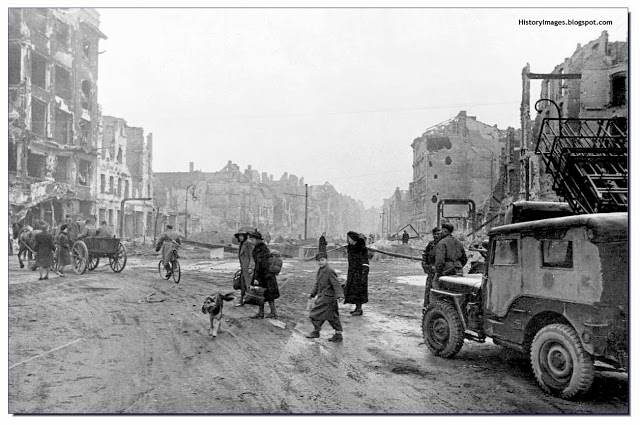
Soon, a conference was called to allow the Big Three to outline the new European order. New borders were drawn, new countries replaced the old, regimes changed. The Americans still wanted Soviet support in Asia, so they quickly agreed to Stalin's demands. Only Churchill was uneasy, thinking that perhaps an Iron Curtain has been pulled over Europe, from Bordeaux over the Atlantic to Trieste over the Adriatic. A year later, American newspapers were abuzz with the news of the Soviet blockade of South Paris. But that is another story.
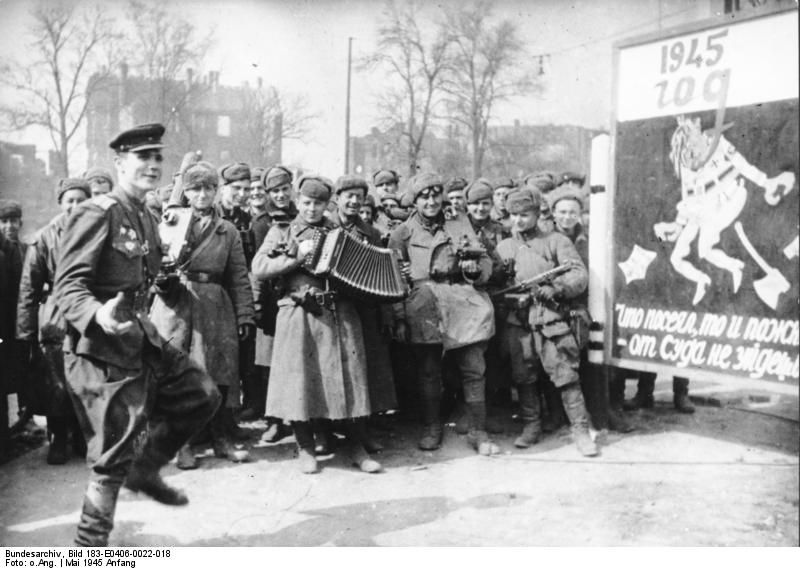
(click)

sniper4652 was amongst the last defenders of the Pomeranian Wall and it was his surrender that ended the battle there. Convicted for prosecuting an unjust war against the Soviet Union, he was sentenced to ten years in prison, with his sentence commuted during the 1949 German-Italian border crisis in exchange for taking up command of a division in the area. After the crisis died down, he returned home and spent his days mostly fishing and living of his retirement pension.

Davin Valkri, after many twists of fate, managed to break out of the Pripyat swamps. A few months later, he found himself commanding a pro-democratic Freikorps in the Ruhr in the last days of the war. Died after an artillery shell struck his command post.

Tekopo ended up supporting Canaris's coup from his headquarters in Zossen. Upon its failure, however, he failed to evade arrest by the Gestapo and was taken to a prison camp. Before his execution, however, the camp was seized by a pro-communist militia. For supporting the coup, he was spared during the post-war trials, and eventually became an advisor to the GDR ministry of defence.

HerpicleOmnicron5 was taken prisoner in the Pripyat pocket alongside his 6th Army and spent the rest of the war in a POW camp on the White Sea coast. After the war ended, he was tried for prosecuting an aggressive war, but managed to convince the judges his failures were actually high-level sabotage. Settled down in Kiel and wrote very controversial memoirs in which he supported that thesis. Reportedly shunned by veterans' groups.

cokerpilot found himself briefly basking in the glory of the general who captured Paris and was afterwards named the military governor of the city. Never succeeded in creating a political career for himself following that success. Died in 1951 from liver failure, his funeral was attended by two French heads of state. A 1957 book managed to cause a scandal by alleging that his extensive counterespionage efforts were, in fact, a cover-up for high-functioning alcoholism, which was protested by veterans as "tarnishing the memory of our great comrade".

gradenko_2000's last operation was the Pomeranian Wall offensive, wherein he was wounded by friendly fire. Even though he commanded until the end of the battle, his wounds were deemed too serious and he spent the rest of the war in hospitals and Black Sea resorts. Later named the commander of the Moscow Military District. Highly respected, even if overlooked by most historians.
C..'s identity was never fully explained and his post-war fate is unknown. Some allegations point to him being the first man in space, others are even more outlandish, but all agree that the furthest we can trace him to is a mysterious 1964 incident in Tselinoyarsk, near the Mongolian border.

Omobono was interned by the Germans after the Italians surrendered. Resurfaced in 1945, after being released from captivity. Went on to become the Minister of Defence of Italy, the first one to suggest bringing the Communist into the government coalition. Kidnapped and murdered by the Red Brigades in 1955.
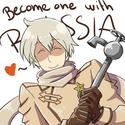
Fangz ended the war basking in the glory of the one who planned nearly all of the most important Soviet offensives. This, however, made him a threat to the Soviet establishment, with Stalin personally looking ill at his disregard of authority and rising popularity. Forced to retire from the army, he moved on to preside over a regional Party committee in his native Vladivostok. He lived in relative opulence and was often invited to speak at universities and schools, even beyond the USSR. Never learned that he was under KGB surveillance for the rest of his life, and nearly arrested after Khrushchev's rise to power.

Spookydonut had the honour of personally receiving the German surrender of Berlin. Afterwards, however, he lost the race to the Rhine to MonotoneMorgan. Left the army in 1947 and, after a brief spell in politics, decided to become a novelist. Arrested in 1968 as a political dissident and exiled from the USSR.

The Sandman was reinstated to command in October 1943. Mercilessly prosecuted the war against Finland, leading to the country's surrender and replacement by a new Finnish Soviet Republic later that year. Left the army in 1944 to become the USSR's ambassador to the United States.
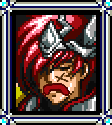
MonotoneMOrgan was the winner of the race to the Rhine, which, despite not being the most difficult moment of his career, is the one most often remembered. Upon coming home from the war, he was promoted and made the chief of the STAVKA. He left that position in Spring 1948, following his mishandling of the Busan Crisis.
Lord Windy was placed in the gulag following a still classified incident early in the war. He was never released or pardoned.
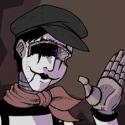
V. Ilyich L. retired from the war due to health problems. He died in early 1944 of multiple system failure.
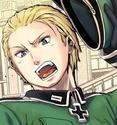
Logicone spent the latter part of the war commanding the German forces in the West. After bowing out of the Eastern Front, he never achieved much and escaped to the West following the Soviet incursion into France, where he established a fairly successful sports equipment company. Died in 1950 from heavy metal poisoning.

GenericRX was last seen trying to break out of a bunker complex on the Siegfried Line. Witnesses say that he left it the day after it was completely surrounded by the Red Army and headed south, but no trace of him or his body was ever found.

HipsterRooster spent the rest of the war organizing training facilities west of Moscow. He left the army as soon as the war was over and became a head of a state vineyard in Georgia.
AceRimmer enjoyed a long and successful military career. He was put in charge of many installations and units throughout the next fifteen years before he finally retired. Lived in relative obscurity in a small house near Leningrad.

MithosKuu survived the war safely and became an airline pilot. Died 1967 in a freak accident while flying a (luckily empty) passenger plane.

Bigegan02 was arrested at the end of the war. For his officer's rank in the Waffen-SS, he was sentenced to 15 years in prison. Served the full sentence and went on to run a book store in Hamburg.
That's it for today and more or less for the LP. Tomorrow I'll try to post some more, though, but today I am completely spent. See you soon!
Remaining docs
OKH 14
OKH 13 Stavka 13
OKH 12 Stavka 12
OKH 11 Stavka 11
OKH 10 Stavka 10
OKH 9 Stavka 9
OKH 8 Stavka 8
OKH 7 Stavka 7
OKH 6 Stavka 6
OKH 5 Stavka 5
I'll try to post the game stuff later today.